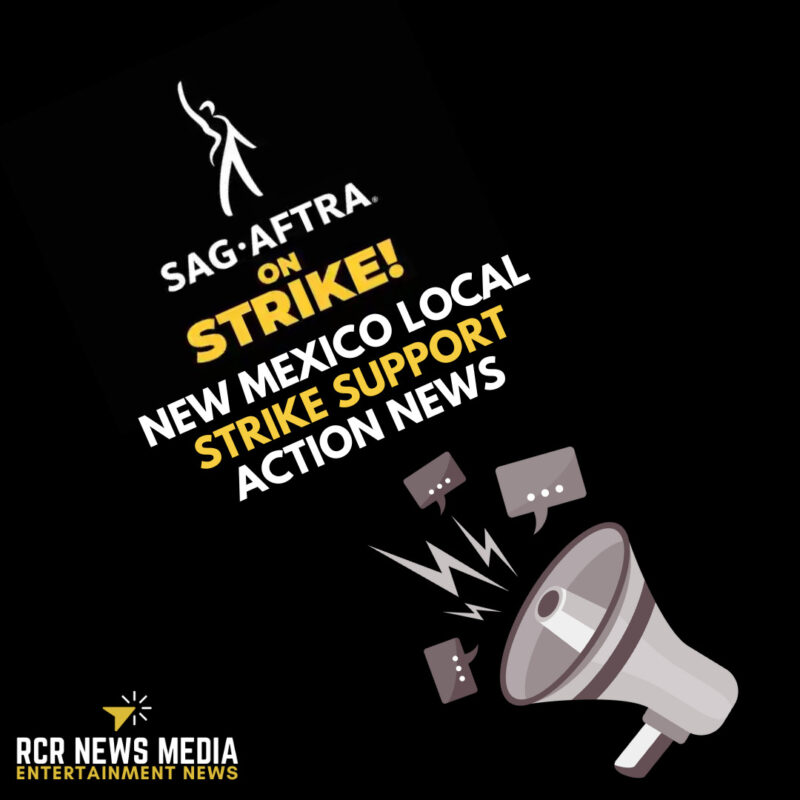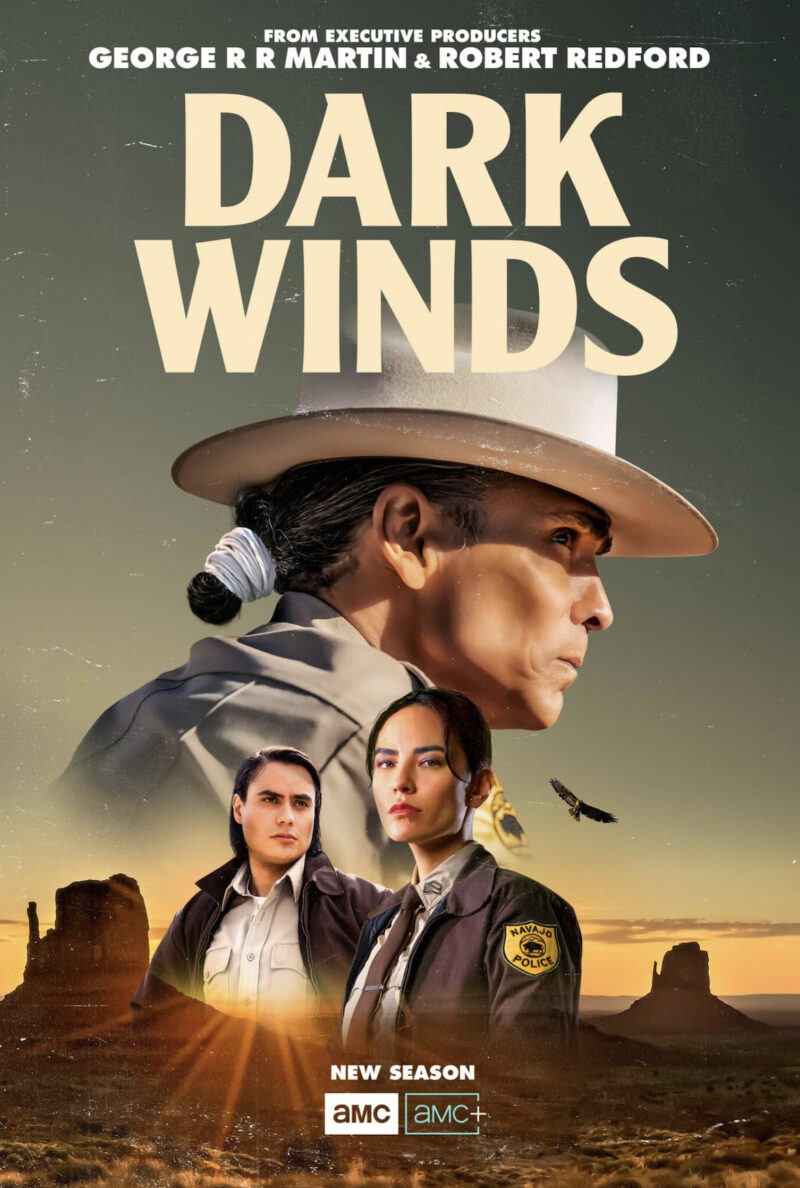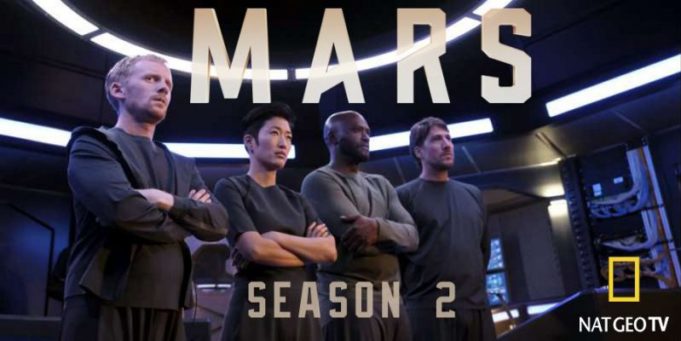Coverage by: RCR Entertainment Reporter, Jennifer Ortega
Follow Jen@jennifereortega
Last week National Geographic threw a galactic party to celebrate the second season of their highly acclaimed show Mars. At the party, they screened the first episode with an introduction from no other than the executive producer, Ron Howard. Along with Ron Howard, the cast was in attendance as well as many of the “big thinkers” (scientists, astronauts, academics) that are heavily involved in the show. Mars has a truly unique format. The show alternates from scripted television to documentary sequences to predict what life will be like on Mars and paralleling it to what is happening today.
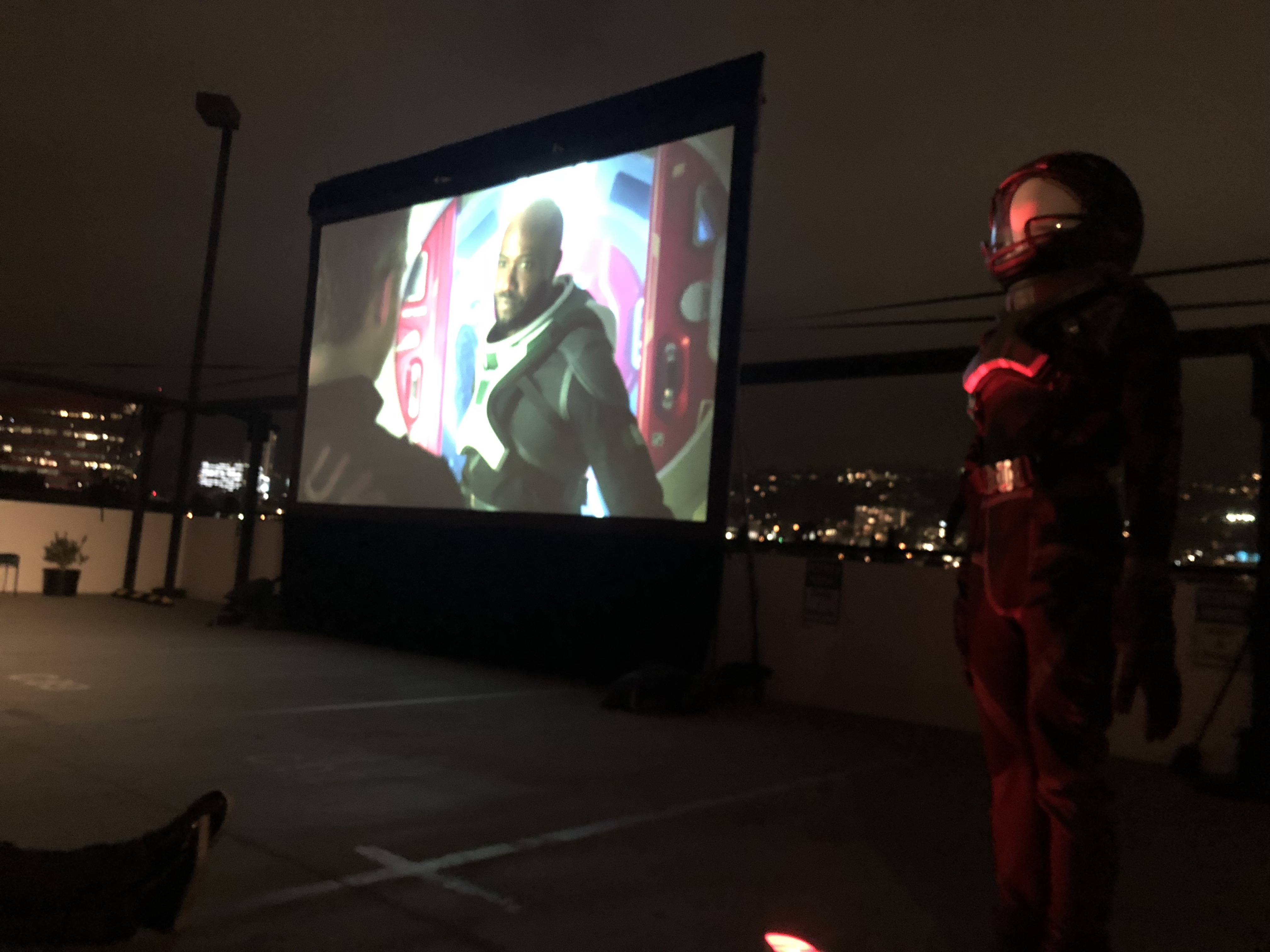
The second season begins Monday, November, 12th at 9/8c, with a six-episode arc. This season the story delves into the boundaries between science and industry. There is always a struggle between the want for profitability versus the need for exploration. Mars explores the notion of whether or not we are doomed to repeat the same mistakes we have made on Earth. The story picks up 5 years after Season 1. Season 1 followed the successful maiden mission to Mars and watched the crew create an initial settlement. 5 years later the door has swung wide open for the private sector. Lukrum Industries integrates themselves into Mars and creates tension among the original mission-driven scientists.
“Last season, we envisioned getting to Mars, so now, we’re shifting the conversation to what will happen once we’re on a planet where everything is alien and extraordinary,” says Mars Season 2 showrunner Dee Johnson (Nashville, Boss, ER). “Mars is a pressure cooker — there’s a constant push-pull between science and industry, and as a result, emotions run high. Although conflicting, their agendas are not mutually exclusive; with the advancement of science and exploration also comes industry and money making.”
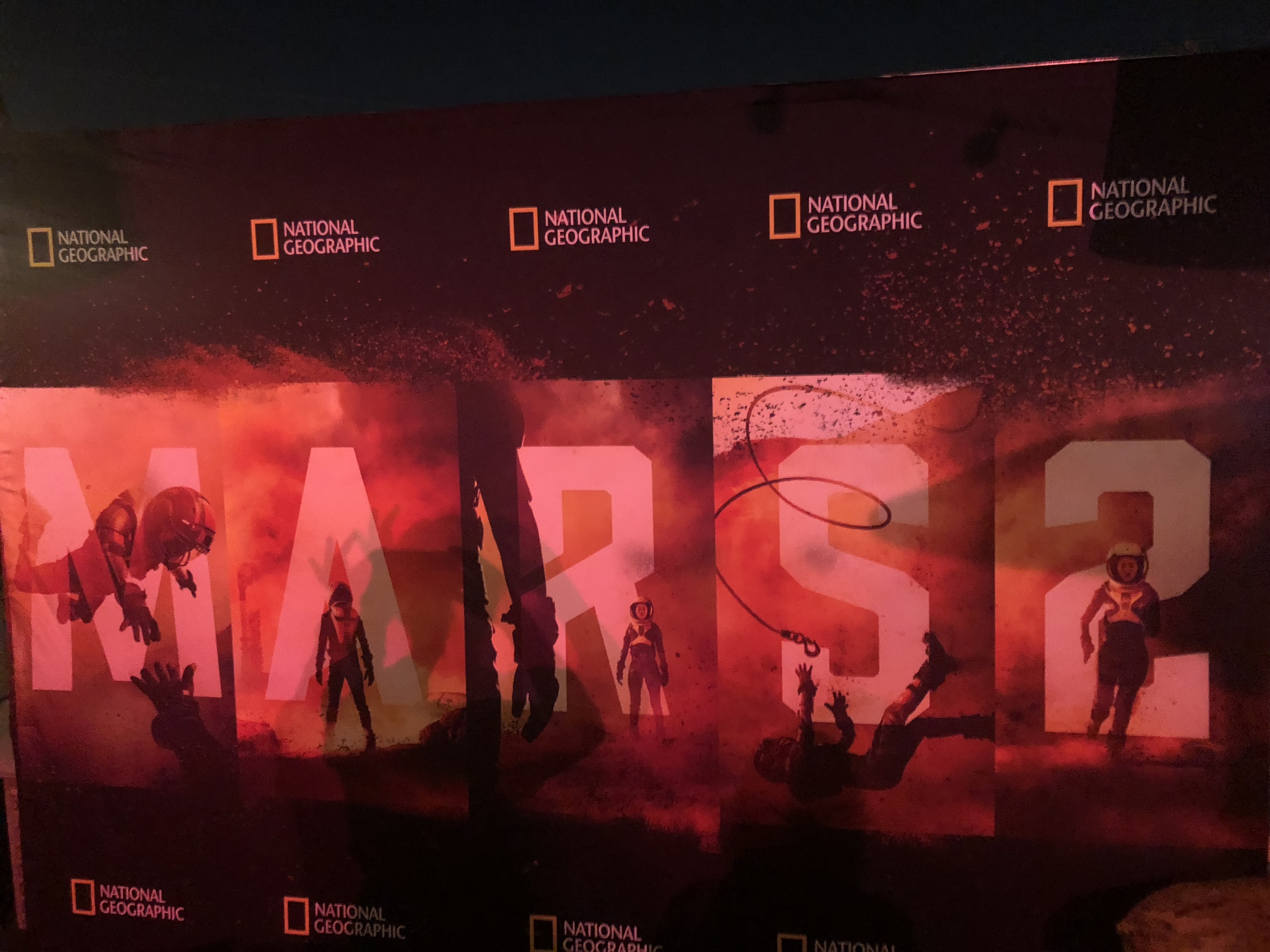
Before the first episode screened, Ron Howard shared some words about working with National Geographic. “What was so exciting for us was the willingness on the part of Nat Geo to take a chance with Mars. The basic idea of the show was interesting to Brain Grazer and me, but we then became intrigued by the depth of knowledge from Stephen Petranek’s book and from other research of how that journey might play out. We thought that would be exciting on a cinematic level and so did Nat Geo. So now we’re in Season 2 and we’ve learned more and I’m very proud of Season 2. And I’m very excited to share it with you.”
Red Carpet Report’s Jennifer Ortega was able to speak to some of the Big Thinkers of Mars, including; Stephen Petranek, Co-Executive Producer, who wrote the book How We’ll Live on Mars, which the series is based on, Antonia Juhasz, an award-winning policy analyst, author and journalist who covers all aspects of oil and energy policy and Scientist Casey Dreier, Director of Space Policy at The Planetary Society and an expert on Mars exploration policy, geopolitics, Robotic missions to Mars, the commercialization of space and human spaceflight history.
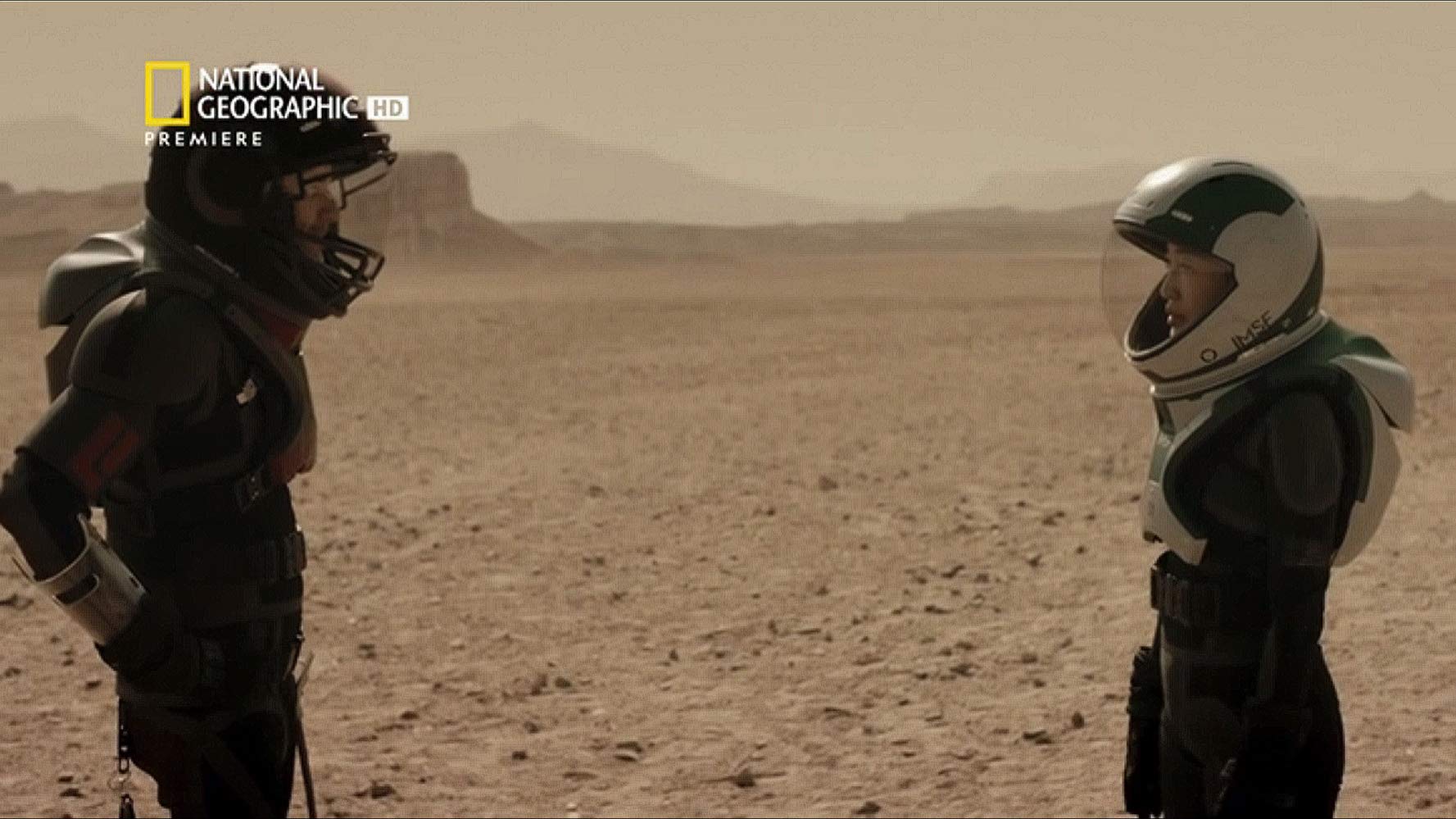
Can you tell us a little bit about Season 2 of Mars?
Stephen Petranek: It’s real life, but it’s on Mars. That’s what’s happening in Season 2. It’s a lot different from Season 1. Season 1 was just a few astronauts establishing a base camp and now you have 300 people on Mars and you begin to develop a real society where you have multiple skill levels and you actually have enough people to actually start building a real society.
How do we not screw Mars up in the future?
Stephen Petranek: By having these conversations now and by having forward-looking television shows like this that reach millions of people so these questions get asked now instead of later. I mean this is all facts now. This is really going to happen whether we like it or not. So this is our opportunity to get it right. We obviously know what we’ve done wrong on Earth and we know what some of the complications are on Earth of getting195 different countries to agree on something. So we have a head start. I’m optimistic.
Antonia Juhasz: Yeah, I am optimistic on the basis that we’re having a conversation now. I think this show is extremely optimistic that it’s taking place and I think it’s bringing us into a conversation that we wouldn’t have been brought into otherwise. I think the risk is that we have what we’ve done here on Earth and we haven’t acted on what’s necessary to solve those problems. One of the reasons why is the lack of quality voice between particularly the United States corporate actors and the rest of us. That is what’s on the show, to what extent will that be repeated and will we be able to have a counterforce saying this isn’t just about getting the resources and just about denying science. This isn’t just about spreading information that only works for us and serves the purposes of, an example of the show is the fossil fuel interests on earth or are we going to listen to the scientists, are we going to listen to what becomes the indigenous population; the scientists and the crew that has been there the longest and had that lesson. That’s an open question of what we’re going to carry forward.
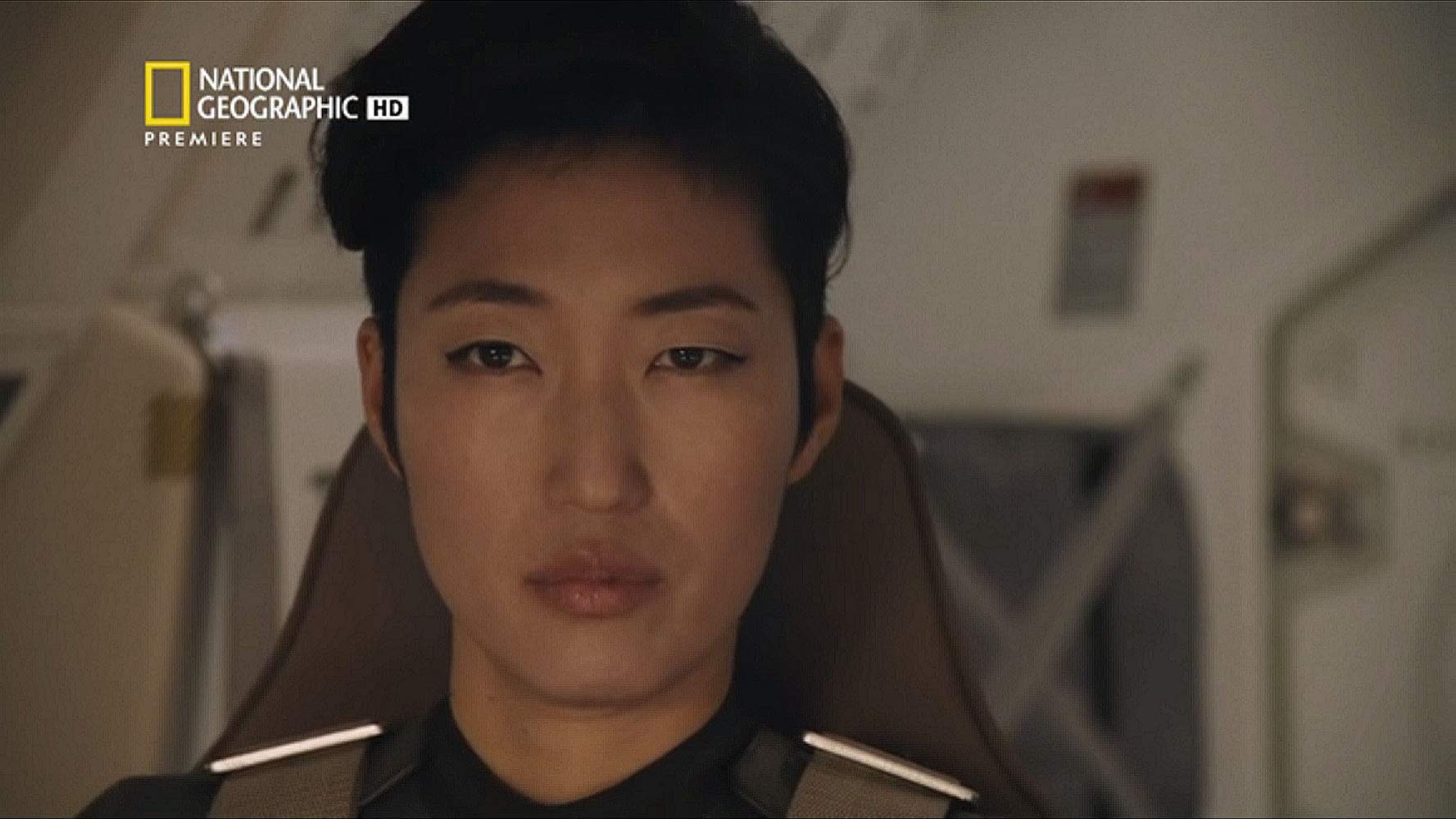
I think that’s part of the genius of the show. I love documentaries, but documentaries… that’s a very specific audience so when you present something that’s also entertaining I feel like that brings the audience in. It does start a dialogue about the future which is very important. Like Stephen said many times, we are going to Mars. It’s fact.
Casey Dreier: Also the idea of storytelling, we were talking about this earlier today. Right now you can express the truth through storytelling and sometimes it can resonate more deeply with people and as you said it can reach people who didn’t even know the name but know they like this. I think almost everyone is a space fan. They just may not realize it yet. Mars is presented in an accessible way and they see themselves reflected as part of that story. That’s again what the show does nicely and I think one of the best outcomes that can come from this.
Antonia Juhasz: The warning is one that’s been repeated in science fiction for decades. It’s one of the corporate strains, the strain between corporate interests and public interests. William Gibson is one example. Do Androids Dream of Electric Sheep is another example. Elysium is an example. It’s a constant concern that we have so it’s not like we haven’t thought about this before, but we haven’t answered the question satisfactorily yet here on Earth or looking forward and it’s carrying that dialogue into one that is driven not just by science fiction. When you watch this I don’t think it even feels like science fiction. I don’t think it reads like science fiction. It reads like a documentary based in the here and now and this space exploration project that feels like it’s happening in the here and now and we are engaging in the critical conversations in the here and now. That’s also what makes the show so powerful.
Is there anything that just surprised you going into Season 2?
Stephen Petranek: Yeah. I’ve been surprised by how science is catching up. You know we took a chance saying that it was reasonable to think that you could drill for water, liquid water on Mars. That was a big assumption. We made a lot of assumptions like for example that Mars which really was kind of counter to existing in science until just recently, that Mars is a geologically active planet, that there must be something hot actually in the center of Mars, something like lava. We know there once was lave there and now we know that you can have a Marsquake, a Richter 6.0, that we did not know when we wrote this and started. So that’s been a big surprise to me, that the science is so good on Mars now. There are six satellites orbiting Mars now collecting information. There’s so much information being collected on Mars that there’s actually a clogged pipe so to speak in downloading that information down to Earth. Yeah, actually Goddard can’t get nearly enough stuff through those so there’s a whole system of satellites being built to on Earth so that you can just get the information from these satellites down. There’s so much competition for the communications time so we’re finding out an awful lot. Much faster than I thought and we will. It’s going to get better. Faster.
Casey Dreier: This is actually one of my favorite topics, communication infrastructure on Mars. Everyone’s favorite topic, right? But that is literally one of the things in particular that the rover drivers struggle with. The two rovers on Mars, they talk about data volume. Like this is going to generate too much data. So we can collect all this data, but they might not be able to send it back fast enough. It could take years. So what you have right now is that Mars is the only other planet that we know of in the entire universe that has a satellite communications system. Earth is the one and then we have a satellite communications system at Mars. That’s what NASA and other countries have built over the last 20 years and every day, twice a day, two orbiting spacecrafts fly over the Curiosity rover and they shoot some data up to that and then they relay it back to Earth at much faster speeds so you can get some data. But there’s only so much you can do. You have to compete for time in the Deep Space Network because they have to talk to all the deep space spacecrafts out there. So you only get back a certain amount of data per day and if you collect too much data you’ll never get it. So that’s these weird infrastructure things you have to worry about. There’s a scene in The Martian where they go oh we have one of our 12 communications satellites. And I’m well we only have two and they’re both way past their lifetimes. So that’s one of these things that we’re going to be doing on Mars. We need to be building infrastructure to support humans and robots in our efforts out there. We need to be building this right now. It took them a year to send back data from the New Horizons mission after it flew by Pluto. It took almost a year because it took so long to generate so much data. We’re talking about like 1988 modem download speeds basically. So you think about that. That’s where we are.
Do you think Earth will try to control Mars?
Stephen Petranek: Maybe, but the only thing that Mars will initially be dependent on for is freeze-dried food for maybe 50 years. So once Mars becomes totally sustainable on its own and can provide life support for an increasing population rapidly, I don’t think Earth will have any control of Mars.
Thank you all so very much! It’s been such an interesting discussion!
Casey Dreier: Of course! I love to talk about Mars so I appreciate your enthusiasm.
CAtch Mars Season 2
MOndays 9/8c on Nat GEo
Episode 1: “We Are Not Alone”, Premieres Monday, November 12, 9/8c
After almost a decade alone on Mars, scientists at the International Mars Science Foundation’s (IMSF) fully developed Olympus Town settlement prepare for the arrival of a group of highly skilled astronauts working for Lukrum Industries, a for-profit corporation specializing in natural-resource extraction. Tensions arise when the miners from this new colony, led by Commander Kurt Hurrelle (Jeff Hephner), request IMSF’s aid without prior warning, forcing Olympus Town Mission Commander Hana Seung (JiHae) to determine how to ensure a peaceful coexistence. In present day on Earth aboard the world’s northernmost oil platform in the Arctic, extreme conditions make for a Mars-like work environment. A worker shares the struggles of being away from his family for three weeks at a time.
ABOUT MARS:
Of all the planets in our solar system, none has captured our collective imagination like Mars. In season two, it’s the year 2042 and the International Mars Science Foundation astronauts have developed Olympus Town into a full-fledged colony. But by this point, they cannot continue to rely solely on government financing, so the doors of opportunity have swung wide open to the private sector. This season, MARS delves into the friction between science and industry. The series examines the impact that humans have on the red planet — and the impact it has on us. The mission to terraform a virgin planet comes with its risks, rewards and myriad considerations. Are we doomed to repeat the same mistakes? Will our struggles and opportunities on Mars tomorrow reflect those we’re making on Earth today?
FOLLOW MARS:











